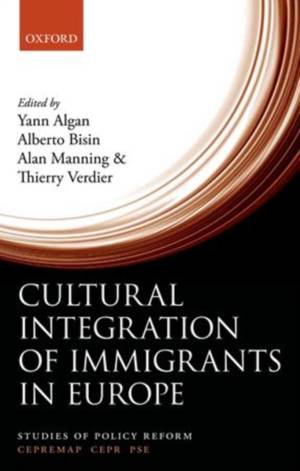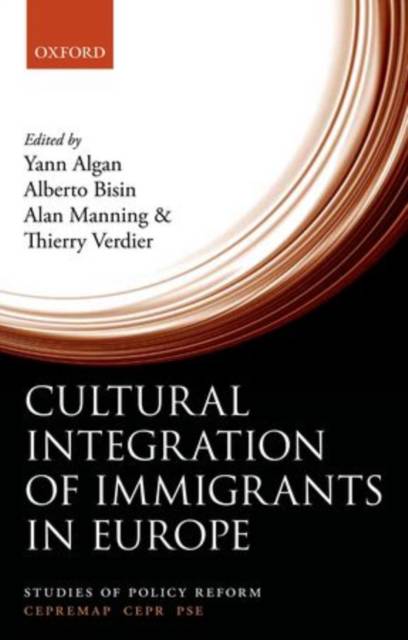
- Afhalen na 1 uur in een winkel met voorraad
- Gratis thuislevering in België vanaf € 30
- Ruim aanbod met 7 miljoen producten
- Afhalen na 1 uur in een winkel met voorraad
- Gratis thuislevering in België vanaf € 30
- Ruim aanbod met 7 miljoen producten
Zoeken
€ 241,95
+ 483 punten
Omschrijving
This is an open access title available under the terms of a CC BY-NC-ND 3.0 International licence. It is free to read at Oxford Scholarship Online and offered as a free PDF download from OUP and selected open access locations.
The concepts of cultural diversity and cultural identity are at the forefront of the political debate in many western societies. In Europe, the discussion is stimulated by the political pressures associated with immigration flows, which are increasing in many European countries. The imperatives that current immigration trends impose on European democracies bring to light a number of issues that need to be addressed. What are the patterns and dynamics of cultural integration? How do they differ across immigrants of different ethnic groups and religious faiths? How do they differ across host societies? What are the implications and consequences for market outcomes and public policy? Which kind of institutional contexts are more or less likely to accommodate the cultural integration of immigrants? All these questions are crucial for policy makers and await answers.
This book aims to provide a stepping stone to the debate. Taking an economic perspective, this edited collection presents a current, comparative picture of the process of cultural integration of immigrants across Europe. It documents the main economic debates on the causes and consequences of cultural integration of immigrants, and provides detailed descriptions of the cultural and economic integration process in seven main European countries, including France, Germany, Italy, Spain, Sweden, Switzerland, and the United Kingdom. It also compares the European context with the integration of immigrants in the United States.
The concepts of cultural diversity and cultural identity are at the forefront of the political debate in many western societies. In Europe, the discussion is stimulated by the political pressures associated with immigration flows, which are increasing in many European countries. The imperatives that current immigration trends impose on European democracies bring to light a number of issues that need to be addressed. What are the patterns and dynamics of cultural integration? How do they differ across immigrants of different ethnic groups and religious faiths? How do they differ across host societies? What are the implications and consequences for market outcomes and public policy? Which kind of institutional contexts are more or less likely to accommodate the cultural integration of immigrants? All these questions are crucial for policy makers and await answers.
This book aims to provide a stepping stone to the debate. Taking an economic perspective, this edited collection presents a current, comparative picture of the process of cultural integration of immigrants across Europe. It documents the main economic debates on the causes and consequences of cultural integration of immigrants, and provides detailed descriptions of the cultural and economic integration process in seven main European countries, including France, Germany, Italy, Spain, Sweden, Switzerland, and the United Kingdom. It also compares the European context with the integration of immigrants in the United States.
Specificaties
Betrokkenen
- Auteur(s):
- Uitgeverij:
Inhoud
- Aantal bladzijden:
- 360
- Taal:
- Engels
- Reeks:
Eigenschappen
- Productcode (EAN):
- 9780199660094
- Verschijningsdatum:
- 12/12/2012
- Uitvoering:
- Hardcover
- Formaat:
- Genaaid
- Afmetingen:
- 145 mm x 218 mm
- Gewicht:
- 576 g

Alleen bij Standaard Boekhandel
+ 483 punten op je klantenkaart van Standaard Boekhandel
Beoordelingen
We publiceren alleen reviews die voldoen aan de voorwaarden voor reviews. Bekijk onze voorwaarden voor reviews.







